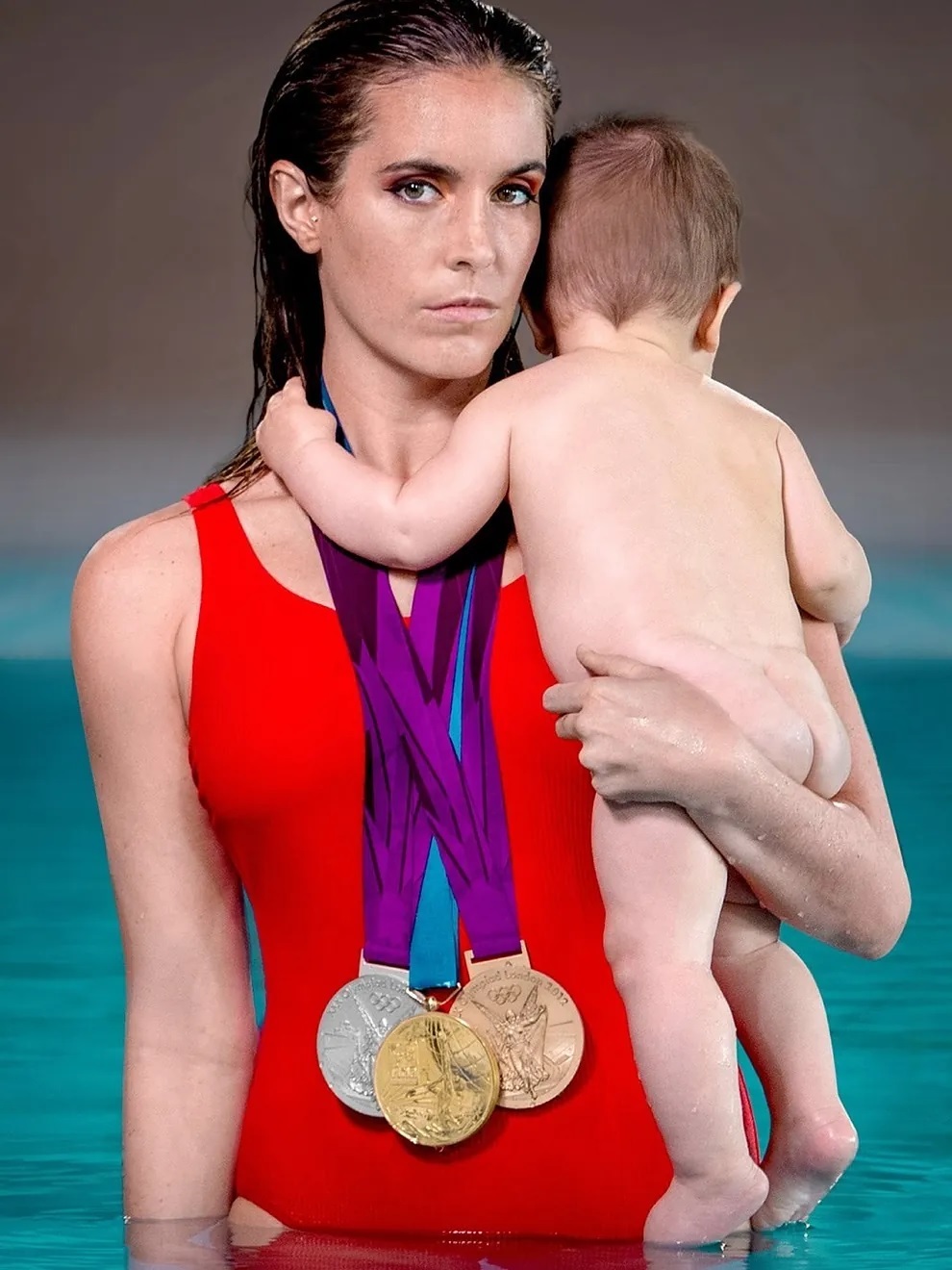The Paris 2024 Olympic Games are the first in history to have breastfeeding rooms and daycare among their facilities. The measure aims to allow athlete mothers to breastfeed their children if they wish and share an intimate and quiet space with them away from the hustle and bustle of the Olympic Village.
This action is in line with the widely touted claim these days that these Olympics are the first in history to be completely gender-equal in terms of participation of men and women. In the year 1900, women made their debut in this global competition. There were only 22. This time, 5,250, the same number of women as men.
The inclusion of these facilities designed for athletes and their children is the result of various advocacy actions by women, who have raised their voices about the difficulties of balancing motherhood and elite sports, particularly at the Olympic Games.
Catalan athlete and Olympic synchronized swimming medalist Ona Carbonell has been one of the leading figures fighting for the rights of mothers and their babies. At the previous Games held in Tokyo and marked by the unique circumstances of the coronavirus pandemic, the Japanese government imposed such strict conditions of stay and mobility in the Village facilities that Carbonell could not bring her son Kai with her.
One of the consequences, as she herself denounced, was the interruption of breastfeeding her 11-month-old baby. Her son lost the sucking reflex during the separation, and Ona had to stop breastfeeding. This unwanted abandonment prompted the swimmer to publish a viral video about the challenges of raising her child and competing in the Olympic Games.
Now, in Paris, the breastfeeding rooms set up within the Olympic Village itself will indeed allow breastfeeding mothers to continue doing so, with spaces close to the hotels where the athletes are staying. On an international level, another advocate for balancing competition participation and caring for the participants' babies has been Allyson Felix, former American Olympic athlete and mother of two.
She, a member of the Athletes' Commission of the IOC, is behind the first daycare available at the Games and recently emphasized in statements to CBS the need to alleviate logistical concerns for athlete mothers: "I knew how difficult it is to compete at the highest level after having my daughter. I wanted to be the voice of athlete mothers and relieve them of a worry, especially during competitions. This space is a place where they can play, feed them, and get away from the noise of the Olympic Village."
These facilities have been well received, and social media has echoed the pioneering initiative.
Regarding the risks of interrupting breastfeeding due to separation between a mother and her child, as happened to Ona Carbonell at the Tokyo Games, Inma Mellado, president of the Spanish Association of Certified Breastfeeding Consultants and a La Leche League leader, explains: "It varies greatly from one baby to another, their age, and the length of absence. A child and their mother can be separated for 6 or 10 days without any issues, but the following year, if the sequence is repeated, that same child may have forgotten how to breastfeed."
In the absence of fixed rules, this expert does point out that it is more likely for breastfeeding to be lost at a later age of the baby. She adds: "When we talk about a baby under one year old, whose main food is milk, this forced separation goes against the child's health and is not up for debate." Therefore, she argues that "it doesn't make sense to take risks and separate them when we can be sensitive to the needs of mothers and babies."
For Mellado, the key is that being a mother is not exceptional: "This goes beyond providing spaces or not. It's about understanding that motherhood is a normal moment in a woman's life and therefore in the life of a female athlete," she concludes.
